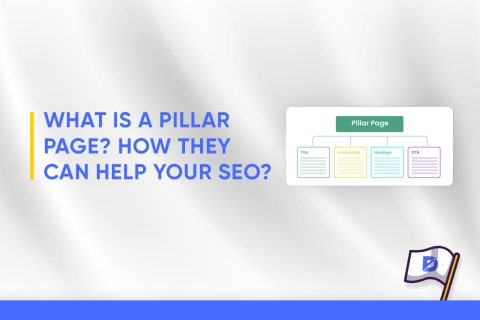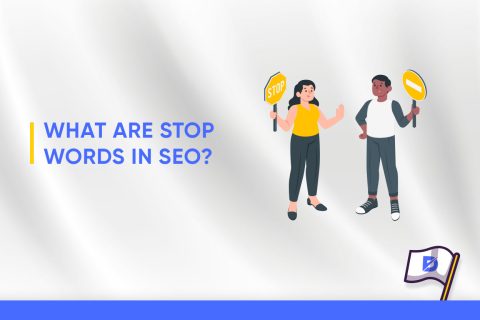Online presence is vital for any business or organization in today’s digital world. Search engine optimization, or SEO for short, is defined as optimizing your website to improve its visibility and credibility in search engine results pages (SERPs), directly impacting your online business success. Most people use search engines to search for information, brands, products, or services on the web. Having a strong SEO strategy can allow them to rank higher in search results and attract more potential visitors. At this point, SEO is an essential strategy for startups as it lets them create a powerful digital presence, increase targeted traffic, and effectively compete against well-established competitors in their industry. Today’s post will provide all kinds of information about SEO for startups.
The Importance of SEO For Startups
There are dozens of advantages to having a good SEO strategy for startups. Let’s talk about them briefly.
- Improving online presence: For many startups, it is vital to be visible and credible to target customers in search results.
- Increased trust: When you have higher rankings in SERPs, it helps you to create a more trustworthy image in your mind.
- Cost-effective results: Since startups have limited budgets, SEO is a cost-effective digital marketing method.
- Better user experience: It is crucial to create a website that has high-quality or relevant, informative, easy-to-read, easy-to-understand content and is easy to navigate.
- Increased sales: Having higher rankings in search results helps you increase your sales and grow your business in a short time.
- Strong relationships with your customers: A better SEO strategy leads to increased engagement and higher conversion rates, resulting in loyal customers.
- Fierce competition: SEO provides startups a competitive edge by enhancing visibility on search engines. Optimized high-quality content differentiates and attracts customers.
- Measurability: Startups can optimize content for search engines as they expand, attracting revenue and customers over time.
Top SEO Tools For Startups
Millions of SEO tools are available to help you succeed in your SEO strategy. However, we want to ensure that we do not overload you, keeping in mind that you are the owner of a startup. For this reason, we would like to introduce the most critical tools to you by gathering them under two main headings – tools provided by Google and third-party SEO professionals.
Google Tools
SEO is at the heart of digital marketing to improve a website’s visibility on search engines. To support these efforts, Google provides many essential tools to help you. Here are the most preferred ones:
Google Analytics
It doesn’t matter if you are an international business or a startup; it is one of the most valuable tools that provide essential data and helps you gain insights into your website traffic, visitor behaviors, and other metrics. As a startup, you can;

- Understand your visitors’ behavior, including which pages have the higher bounce rate or conversation rates.
- Determine the points you need to improve, such as technical issues or navigation problems.
- Track the effectiveness of your marketing campaign by measuring the traffic and conversation rates from your campaign.
- Observe your website traffic, such as which web pages are more popular, which online channels attract more traffic, or where your visitors are coming from.
Google Keyword Planner
Google’s keyword planner tool helps you to discover keywords related to your industry, products, services, or content. It allows you to generate keyword ideas, see search volume data for specific and relevant keywords, and estimate how often keywords are searched and how competitive they are in your industry.
Google Search Console
Google Search Console helps you get insight into your search performance in terms of how your website appears on Google. The tool provides the number of clicks, click-through rates for each page, and impressions you get. Besides, the tool lets you detect and fix any technical issues affecting your website’s performance, such as mobile usability or indexing problems. In addition to all these benefits, the tool warns you of any security issues, such as malware content on your website.
Google PageSpeed Insights
PageSpeed Insights is a tool that tells you how quickly your website loads on desktop and mobile devices and how well it performs. If you make your website faster to load, visitors will be easier to use, leading to more people, a positive visitor experience, and a higher ranking on Google.
Google My Business
Google My Business is a tool that enables you to manage the details of your business that are shown in search results and on Google Maps. Keeping this information correct and up-to-date is essential as it can help your business appear more often in local search results, increasing customer traffic. So, it makes Google My Business a necessary part of SEO for startups.
Third-Party Tools
There are hundreds of third-party tools available that can help you with search engine optimization (SEO). Here are some well-known examples:
SEMrush
SEMrush is a perfect SEO tool that offers a range of features to help you improve your search engine rankings, credibility, and visibility. The tool provides keyword research, backlink analysis, website audits, competitor analysis, and other features to help you optimize your website for Google. With SEMrush, you can measure your website’s ranking for a specific keyword, analyze your backlinks, and discover new keyword opportunities. The tool is essential for startups’ SEO strategy, providing insights into the competition. Thus it allows them to compare their performance with other websites. After learning how to use SEMrush, also you can see that it is easy to use.
Ahrefs
Ahrefs is another comprehensive SEO tool that provides dozens of features to help startups improve their search engine performance. With Ahrefs, startups can conduct extensive keyword research, analyze their backlinks, and discover content opportunities to help them rank higher in SERPs.

The tool also provides a content explorer feature, which allows you to find the most famous content in your industry, providing ideas for new content and helping improve your website’s content.
Moz
Moz is a well-known tool used for SEO. The tools provide a range of features that help you enhance your website performance and increase your visibility on Google. It includes website analysis, backlink analysis, and keyword research, which are essential for optimizing your website content. Moreover, you can monitor your rankings for specific keywords you use over time. In this case, you can prefer either Moz’s free or paid versions.
Screaming Frog
Screaming Frog is an SEO tool that measures and analyzes your websites for technical issues and points for improvement. The tool’s crawler allows you to deeply analyze technical issues like duplicate content, URL problems, or broken links. Screaming Frog offers essential data on improving on-page optimization, including your title tag, meta descriptions, theme or image optimization, etc.
On-Page Optimization
On-page SEO involves optimizing specific web pages to improve search engine rankings and attract more targeted traffic. This optimization process is done directly on the website or webpage that you want to optimize.
- High-quality content: Create high-quality, informative, helpful, unique, and valuable content to target visitors.
- Keyword Research: Use competitive and relevant keywords on your pages. You can use Google Keywords Planner or third-party keyword idea generators like SEMrush or Ahrefs. Besides, looking at social media and forums can help you gain insight into keyword research and idea generation.
- URL: URLs of your web pages should be SEO-friendly, make them short and sweet, and keyword rich.
- Title Tags (Page Titles): Include the focus keyword or brand name on the title tag, which generally appears in the browser tab.

- Meta description: Use competitive keywords in the meta description, which summarizes the content in the head section of SERPs.
- Image optimization: Use unique and page-related images at the highest quality. Reduce the size of your image files. Organize multiple images for optimum viewing. Use “Alt Text” to make the image readable for search engines, and include a concise caption with your image.
- Responsive website design: Make sure your web pages look the same and display perfectly on all screen sizes, from mobile phones to desktop computers.
- Internal and External Links: Ensure having high-quality links, frequently check internal and external links, and fix broken ones immediately.
- Headings: Using headings in on-page optimization can enhance the content structure, readability, and user experience. Try to use appropriate headings.
- Theme optimization: Focus on visuality with integrity and an attractive theme and provide better customer engagement and visitor satisfaction.
- Website speed: Remember that one of every four visitors leaves websites that take longer than 4 seconds to load.
Off-Page Optimization
Unlike on-page optimization, off-page optimization refers to activities performed outside of a website to increase its Google and other search engine rankings and drive more organic traffic.
- High-quality backlinks: They signal to Google that other websites consider your content valuable to reach, allowing you to rank higher in search engine results and increase organic traffic.
- Social media marketing: This type of marketing increases brand exposure, engages with potential customers, attracts traffic, and improves search engine rankings through social signals.
- Directory submission: Directory submission allows you to create backlinks. It also increases website visibility and improves search engine rankings by getting listed in relevant web directories.

- Social bookmarking: It can help your SEO strategy by bookmarking and sharing website content on social bookmarking sites.
- Guest Blogging: Writing articles on external websites as a guest can assist in establishing your brand and generating more website traffic.
- Online reviews: Reviews contributes valuable user-generated content that can enhance a website’s reputation and trustworthiness in the eyes of potential customers. Besides, Google views user-generated content as a positive signal of relevance and quality.
- Brand mentions: When other websites mention your brand, it allows you to increase your website’s credibility and authority, leading to better Google rankings.
Our Final Thoughts on SEO for Beginners
The importance of search engine optimization cannot be overstated. You should build a strong SEO strategy to grow your business, increase visibility and credibility, and reach more people. In our guide, we would like to examine the benefits of SEO for startups. They include a strong online presence, increased trust, affordability, better user experience, increased sales, and strong relationships with your customers.
Frequently Asked Questions About
There are different reasons for this. SEO is essential because it allows your startup to improve the visibility and expand the reach of your website, leading to increased targeted traffic. This, in turn, helps startups generate more leads and conversions, leading to their business growth.
You can quickly go to Google Page Speed test, type your website address, and click “Test.” Within seconds you will receive a speed score and a report showing recommendations for further improvement.
The answer may vary, from failing to do proper keyword research, using duplicate content, or ignoring a well-on-page optimization process.
The time varies, depending on numerous factors, such as the number of competitors in your industry, the quality of your content and web pages, the level of user experience you provide, the targeted keywords, etc. You can see results in 4 or 6 months if all goes well.
There are different ways to measure success. You can check the website traffic, conversion rates, revenue, backlinks, and rankings in search engines.





No comments to show.